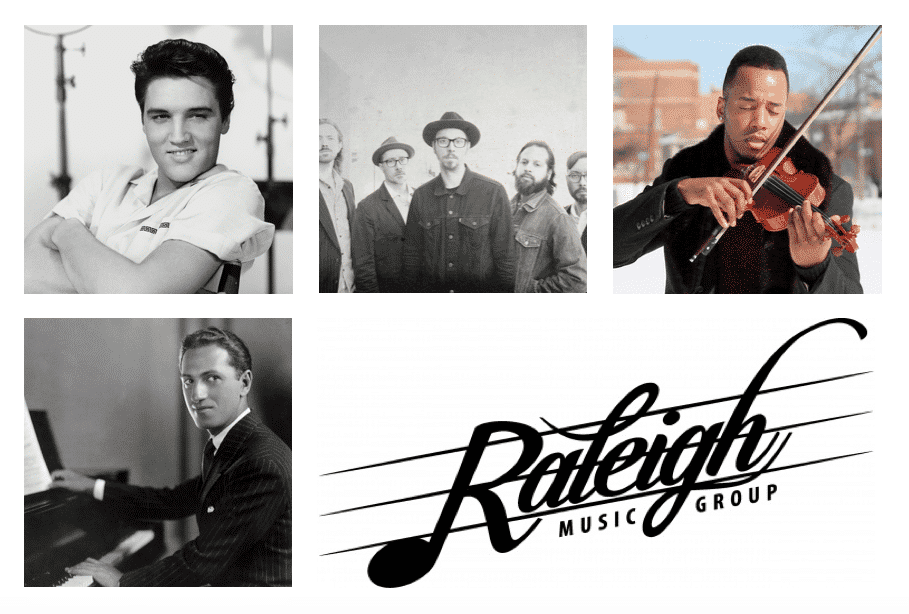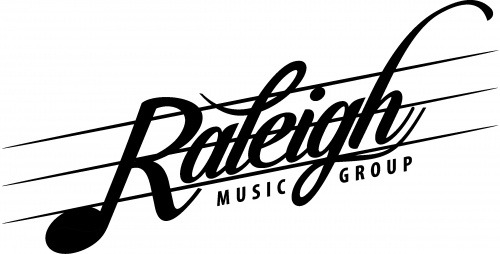We caught up with Peter Raleigh, co founder of our client Raleigh Music Group, during Midem 2016 to discuss representing American standards, re-gaining musical rights, and focusing on great customer service.
Hi Peter, how did you first get into the industry?
I’m the perfect example of the unplanned life. In my 20s I ran a not-for-profit theatre company in the Bronx but eventually the government funding ran out so I looked to get into either film or music. I picked out an ad in the New York Times. It turned out to be Cherry Lane Music Publishing and although the job advertised wasn’t available, they said, “Would you like a job in our administration department?”, and I said, “That would be kind of interesting.” So my career path was forever changed, and it became my life.
I was lucky to be in a company like Cherry Lane which was small enough but growing rapidly – they had just signed things like Pokémon and WWE Wrestling, and they would soon sign artists like The Black Eyed Peas, John Legend and the song catalogues of Sammy Cahn and Elvis Presley. There were a lot of great things going on and I happened to be right at the forefront of that. I cut my teeth on Cahn and Presley, because they were classic catalogues that needed attention. So I did my research and I cleaned things up for them, and I learned a lot about copyright. When you’re doing something like that it’s akin to getting an MBA in copyright. I also met Susan Aberbach (one of the owners of the Presley catalogue) and we became friends at that point.
I was at Cherry Lane for 12 years – I was there when the company was sold to BMG/Chrysalis, so I went from working for a small, but well respected publisher to a global publisher almost overnight. So the sheer volume of work and the types of deals they were doing taught you a lot. That was great for me.
So thrown in at the deep end but in a good way?
Yeah. And then I wanted to try something slightly different in publishing. I like focusing on the client needs, and providing value to them. One of the ways I would do that was to look at a classic catalogue and say, “Okay, well, it’s great that you own this song, but why don’t you own this one? But let’s look and see why you don’t think you own this.” And a lot of times I could get things back for them. I’d say, “Well let’s find you a copyright attorney and have them do Terminations on this song or that one.” I did that quite a bit.
Sometimes it was simple things like US renewals where the heirs didn’t realize that the original publisher had lost those rights years ago, and they’re still claiming because no one was perfecting the claim. Or another area, British Reversionary copyright. Through the Presley catalogue I had a situation where I learned quite a bit about that. There’s a copyright attorney who actually gave me all the information on the BRT decisions in the United Kingdom from the 1970’s, and I read all of it. It would be a snooze to most people, but it’s something that I found fascinating and extremely helpful, because I use that now.
Can you explain in more detail the process of getting rights back for people?
Well, that’s kind of our model for Raleigh Music Group. We chat to people and say, “You know, your mother or father wrote all these songs, and I noticed something interesting about their catalogue.” I check the society registrations in the U.S. and elsewhere, and I say, “Well, I noticed that this publisher is claiming this song. Do you have contracts? Do you have documentation?” If the songwriter is deceased and his co-writers are also deceased, it opens up so many things. For example, if there’s no renewal grant in these old contracts, which sometimes there isn’t, or if there is, and the songwriter died before the renewal, the heirs can get rights back. Usually it’s just for the U.S., but there are also possibilities for reversion in territories from the British Commonwealth. In a lot of cases songwriter heirs don’t quite realize that there’s any number of rights that they can get back.
So I’ll do a rights analysis, I’ll go to the writer’s performance society, I’ll get a list of the songs, and I’ll lay everything out in a spreadsheet. And then I go to the Copyright Office and pull information from that, and with any other documentation the heirs might provide, I create a catalogue analysis which becomes my bible so that we know how to claim it. It becomes our roadmap – in a way it’s almost like estate planning for copyright owners. One rights owner said to me, “I’ve had publishers lay things out and say this and that, but they never could show me what I owned or why. This is the first time I’ve ever seen that.”
That’s amazing because it helps them get paid, it helps you get paid, and it’s stuff they didn’t know that they could financially benefit from before.
Yeah. There was one catalogue where I reclaimed 200 copyrights – I had no documentation and the heir really didn’t have any documentation. I would go to the publishers of records and say, “We’re claiming the renewal on this”, but only for the US or worldwide, or whatever. I also went to the Songwriters Guild and I would request contracts from them. For this one catalogue they gave me a whole spreadsheet of what they had in the files, which was hundreds of contracts. I said, “Send me copies”, and they did. As these were Songwriters Guild standard contracts, they had built in reversions which would allow a songwriter to reclaim their rights.
Many of the contracts for this writer had a “Paragraph 8 Notice” clause, and if a certain type of notice was sent to the publisher, then the writer got rights back for the World. If they didn’t, then they only got rights back for the U.S. & Canada. I reclaimed a lot for this particular catalogue using this information. In fact, this author worked with co-writers, several of whom had been deceased for 25 years, so I was able to claim reversions in the British Commonwealth for songs that were only being claimed in the U.S. You use everything in your copyright toolkit to get as many rights back as possible for your client.
What was your motivation for starting Raleigh Music Group last year?

Can you talk about your recent deals with the Elvis Presley and Gershwin catalogues?
I think they came out of relationships. In the case of Gershwin, I knew the attorney, but she actually contacted us. My partner and I had a couple of meetings with the heirs. I talked about the catalogue, probably in a way that no one else would, because I knew certain things about how the songs had been used and their history. That was really appealing to them – I think catalogue knowledge is impressive to copyright owners. Anyone can know the latest hits, but when you’re going back about 70/80 years, that’s a real help.
Someone said to me years ago, “You’re like A&R but for deceased composers”, and it’s true in a way. But the thing is, I idolize so many composers like that, you know – they’re fascinating stories to me. And in a way they were individuals that struck out on their own like Raleigh Music has done, and they hustled and they created some great art. One of the things I like about this business is that you can still work with those composers. You’re keeping them alive, and through their heirs you get to know them even more. In a way you become friends with these composers through the music, through the lyrics and through the families. And to me that’s a great thing because the heirs trust you because you’re helping them.
How do you think you can bring these American standards to new audiences? For example, with the Elvis Presley catalogue.
The thing about Elvis is it’s a great catalogue, and great catalogues bring with them certain history. The company that owns a 75% share of the copyrights, Authentic Brands Group, and Susan Aberbach, who owns the 25% share that we represent, they want to modernise Elvis. Authentic Brands Group also owns the name, image and likeness of Elvis, and I think that’s a help too because they want to open up Elvis to a younger audience. It’s not your grandmother’s or mother’s Elvis, but it could become your son and daughter’s Elvis in a way.
It’ll be younger artists who are choosing to record Elvis copyrights and bring their own artistic intentions to them – they’re infusing the songs with their passion and their youth. Elvis was a movie star, an icon – he was so many things – but it was the music that was the number one thing for him. And I think the owners of the copyrights realise that and have always realised that.
The Junkie XL ‘A Little Less Conversation’ remix was kind of a happy accident – it was the right artist, at the right time. The record label saw that, picked that up because it was tied to an advertisement, and it became his 31st number one hit 30 years after he died – that’s amazing. It became a new standard and it wasn’t originally a standard by any means – it was buried in the catalogue. And someone said to me, “Well, how can we make that happen again?” I said, “Well, you’ve got to try things, you’ve got to work with artists, you can’t just force it.”
Can you talk a bit about your sync strategy?
We’re working on different things. We’re getting out there to music supervisors and advertising creatives. What was really helpful for example, was the Elvis box-set that was released by Sony. It’s a beautiful box-set – it probably has 800 songs in it, and in one instance we knew a gaming music supervisor who’s a big Elvis fan and so we sent that to him and he’s like, “I’m definitely going to use this in a game!” That’s what you have to do – you have to reach out to people and engage their passions. There’s a misconception that Elvis is somehow difficult to work with, and it’s not true. It’s very user friendly in a lot of ways. I don’t know how that perception came about, but I’m trying to demolish that and say, “Look, there’s so many things we can do here, and if you don’t want the Elvis recording, we have other great cover recordings by different artists.”
In terms of moving forward, what do you see as the biggest challenges for publishers?
I think it’s to maintain true to your mission and your integrity, so you’re not just going to sign anything or everything just to pay the bills. You have to think, “Does this catalogue or artist match our mission statement?” We’re also looking at younger artists who can be the icons of tomorrow, and in 20 years from now we’ll see how that pays off. We’re finding some great acts at the moment. Hollis Brown is in the mode of a classic American rock band and we’re hoping that people will be as enthusiastic about them as we are.
Do you think more people will be jumping on the bandwagon of trying to reinvigorate rights?
I think it’s very much in peoples’ minds… well, it’s very much in lawyers’ minds. But it’s interesting – I’m finding it’s not in some artist’s or artist’s heirs minds. I’ve actually seen some cases where heirs have made poor choices in who manages their U.S. termination rights. I’ve seen some people do terminations who weren’t equipped to do them, and it ends up costing heirs their rights which is just sad. You need skilled legal counsel – skilled in terminations – to ensure that you’re getting your rights back.
What music are you excited about at the moment?
Well, I’ll say this again, I think Hollis Brown are amazing – they’re going to be doing a tour in Europe where they already have a following. So I’m kind of excited to see how that plays out, and of course I’m really thrilled about Gershwin.
We’d like to say a huge thanks to Peter for taking the time to chat with us. You can follow Raleigh Music Group and discover more at the following links:
raleighmusicgroup.com
facebook.com/raleighmusicgroup
twitter.com/RaleighMusicGrp

